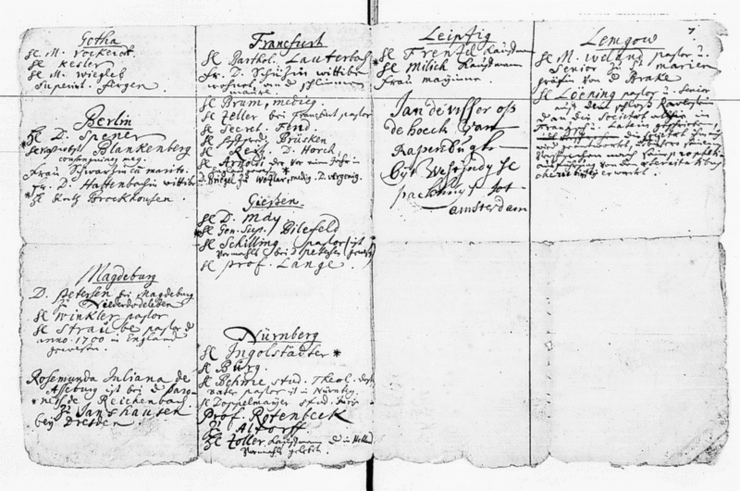
Around 1700, Philadelphia, the idea of an interdenominational covenant of the "children of God," became a widespread ideal of German Pietism. The idea was propagated especially by the followers of the English community of 'Philadelphians'. Research has long suspected that the English Philadelphians possessed substantial influence on both radical Pietism and the Herrnhuters, as well as on broader social debates in the Old Kingdom. But what exactly were these influences? In the Gotha Research Library lies - almost untouched by research - a geographically arranged 'Catalogus amicorum in Germania', which served the Philadelphians as a starting point for their German mission, together with a volume of letters from this group. In addition, there are important holdings in other archives that have also received little attention from scholars.
Based on these sources, the project will reconstruct the early network of Philadelphians between England and Germany as well as the social and cultural mediating role of their ideas. Particular attention will be paid to the role of language: Many German contemporaries saw the language of the Philadelphians - which had ultimately emerged through translations from English - as the Pietist language par excellence. But it remains to be specified what linguistic and cultural contribution the group actually made. The project thus aims to elicit the emergence of the language of Pietism, perceived as identity-forming, using the German Philadelphians as an example, and to examine the role that translations played in the service of cultural transfer.
Image: Page from the "Catalogus amiconi in Germania" of the Philadelphia Society, 1702, FB Gotha Chart A297, 7.